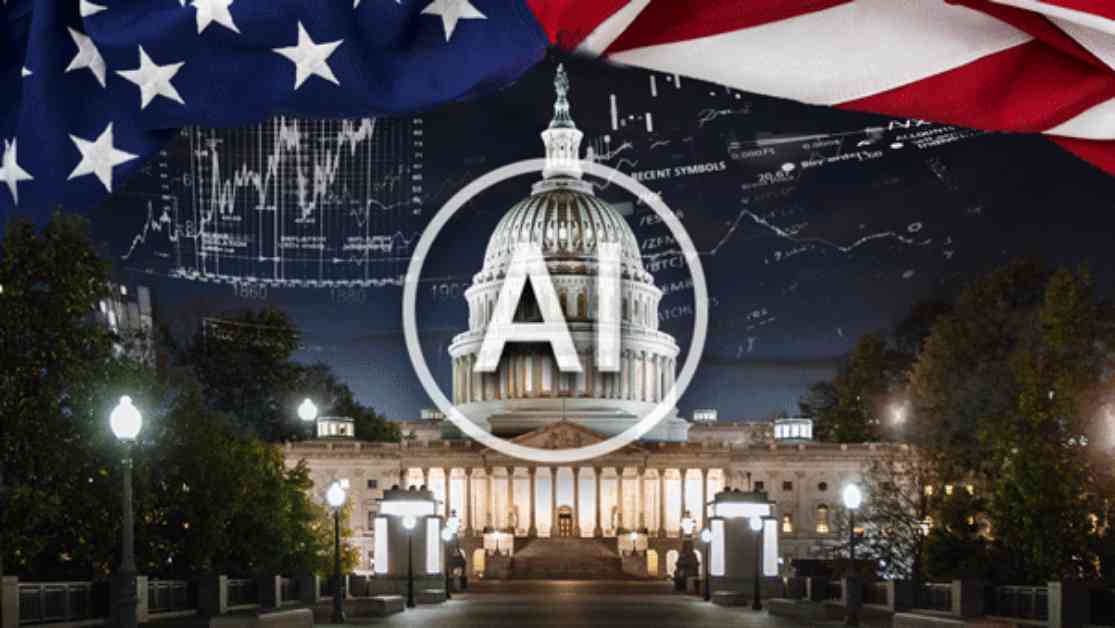The imminent threat of Artificial Intelligence (AI) to our economy and livelihoods is a pressing concern that demands our attention. In a society where jobs are the lifeblood of our sustenance, the looming wave of automation powered by AI poses a stark reality—our traditional system of taxing income from individual workers is at risk of collapse. As machines increasingly replace humans in various industries, the inevitable outcome is widespread job insecurity, leading to a sharp decline in federal revenue. The time is now for bold and innovative actions to avert a dystopian future and pave the way for a more sustainable tomorrow.
**The Current Dilemma: Taxing Humans in an AI World**
At the core of the issue is the fact that our government’s revenue model heavily relies on taxing the labor of working individuals. With the rapid advancement of AI technology, the writing on the wall becomes clearer each day—machines are poised to outperform humans in nearly every task, from manufacturing to creative endeavors like writing and music composition. The impending reality of job displacement by AI systems raises critical questions about the future of our workforce and the sustainability of our economic framework.
As AI continues to evolve, the scope of its capabilities will extend beyond cognitive tasks to encompass physical jobs in sectors such as construction, healthcare, and household services. While this transformation won’t occur overnight, it is an inevitable progression driven by cost-efficiency and productivity gains for businesses. The crucial concern lies in the fact that our current tax base, comprising payroll, income, Social Security, and Medicare taxes, relies on the active participation of a working population. As AI-driven automation displaces human workers, the foundation of our revenue system is under threat, leading to a dual crisis of dwindling government income and a growing cohort of unemployed individuals in need of support.
**Redefining Taxation in the Age of AI**
Traditionally, the notion of supporting non-workers through mechanisms like Welfare or Universal Basic Income (UBI) has been met with resistance due to ideological aversions to wealth redistribution. The prevailing sentiment against taxing workers to sustain those who are unemployed is rooted in deep-seated societal paradigms that eschew socialist or communist frameworks. However, the emergence of AI as a dominant force in the labor market necessitates a paradigm shift in how we conceptualize taxation and social support systems.
The key proposition on the table is a fundamental reevaluation of our taxation model—one that involves levying taxes on AI-driven systems to compensate for lost wages and shore up government revenue. By harnessing the productivity gains of AI and redistributing the generated wealth to human citizens, we can create a sustainable framework that ensures economic stability and social welfare in an AI-driven economy. This innovative approach reframes the narrative of wealth redistribution from a socialist connotation to a pragmatic solution that aligns with the evolving landscape of work and technology.
**A Call to Action: Charting a Path Forward**
The crux of the matter lies in devising a fair and equitable system for taxing AI work and channeling the proceeds back to the populace in a manner that fosters economic resilience and societal well-being. While the logistics of measuring AI-generated value may pose challenges, the urgency of addressing the impending job displacement crisis necessitates immediate action and proactive planning for the future. Whether through a UBI framework or a similar mechanism, the imperative is to reimagine our tax policies in a way that upholds the dignity and livelihoods of individuals in an era of automation.
As we stand at the crossroads of technological advancement and socioeconomic transformation, the choices we make today will shape the landscape of tomorrow. Embracing the potential of AI as a catalyst for progress and prosperity requires bold vision and innovative solutions that prioritize human welfare and societal resilience. By reimagining taxation in the age of AI, we can forge a path toward a future where automation enriches lives, empowers individuals, and paves the way for a new era of economic prosperity and social cohesion. The time to act is now, lest we risk being left behind in a world where machines reign supreme and human potential remains untapped.
















